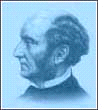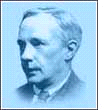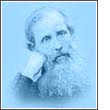Volgens Bentham en Mill - die nut opvatten als geluksbeleving - is nut nastrevenswaardig omdat mensen het feitelijk nastreven. Moore heeft hier tegen het bezwaar ingebracht dat uit het gegeven dat we iets feitelijk nastreven niet afgeleid kan worden dat het nastrevenswaardig is.
Zelfs als nut - of geluk - nastrevenswaardig is omdat mensen het feitelijk nastreven, is het de vraag waarom het grootste geluk voor het grootste aantal nastrevenswaardig is. Volgens Sidgwick moet het utilisme een beroep doen op de intuïtie van rationele welwillendheid (Rational Benevolence) om de wenselijkheid van het streven naar het grootse geluk voor het grootste aantal te onderbouwen.
Andere auteurs menen dat het utilisme ook gefundeerd kan worden zonder een beroep op morele intuïties. Een voorbeeld is Harsanyi. Hij stelt het volgende gedachtenexperiment voor. Stel dat je niet weet in welke maatschappelijke positie je terecht komt in een bepaald maatschappelijk systeem (bijvoorbeeld communisme of kapitalisme). Welk maatschappelijk systeem zou je dan moeten verkiezen? Volgens Harsanyi is het in een dergelijk geval het meest rationeel om ervan uit te gaan dat elke maatschappelijke positie even waarschijnlijk is. Als je dan als individu je verwachte nut probeert te maximaliseren - zoals de rationele keuzetheorie vereist - dan kies je voor de maatschappij met het grootste gemiddelde nut.

| Jeremy Bentham |
Nature has placed mankind under the governance of two sovereign masters, pain and pleasure. It is for them alone to point out what we ought to do, as well as to determine what we shall do. On the one hand the standard of right and wrong, on the other the chain of causes and effects, are fastened to their throne. They govern us in all we do, in all we say, in all we think: every effort we can make to throw off our subjection, will serve but to demonstrate and confirm it. In words a man may pretend to abjure their empire: but in reality he will remain subject to it all the while. The principle of utility*6 recognizes this subjection, and assumes it for the foundation of that system, the object of which is to rear the fabric of felicity by the hands of reason and of law. Systems which attempt to question it, deal in sounds instead of sense, in caprice instead of reason, in darkness instead of light. (Bentham, An Introduction to the Principles of Morals and Legislation, Chapter 1)

| John Stuart Mill |
It has already been remarked, that questions of ultimate ends do not admit of proof, in the ordinary acceptation of the term. To be incapable of proof by reasoning is common to all first principles, to the first premises of our knowledge, as well as to those of our conduct. But the former, being matters of fact, may be the subject of a direct appeal to the faculties which judge of fact-namely, our senses, and our internal consciousness. Can an appeal be made to the same faculties on questions of practical ends? Or by what other faculty is cognizance taken of them?
Questions about ends are, in other words, questions what things are desirable. The utilitarian doctrine is, that happiness is desirable, and the only thing desirable, as an end; all other things being only desirable as means to that end. What ought to be required of this doctrine,what conditions is it requisite that the doctrine should fulfil-to make good its claim to be believed?
The only proof capable of being given that an object is visible, is that people actually see it. The only proof that a sound is audible, is that people hear it; and so of the other sources of our experience. In like manner, I apprehend, the sole evidence it is possible to produce that anything is desirable, is that people do actually desire it. If the end which the utilitarian doctrine proposes to itself were not, in theory and in practice, acknowledged to be an end, nothing could ever convince any person that it was so. No reason can be given why the general happiness is desirable, except that each person, so far as he believes it to be attainable, desires his own happiness. This, however, being a fact, we have not only all the proof which the case admits of, but all which it is possible to require, that happiness is a good, that each person's happiness is a good to that person, and the general happiness, therefore, a good to the aggregate of all persons. Happiness has made out its title as one of the ends of conduct, and consequently one of the criteria of morality.
(Mill, Utilitarianism, Chapter 4)

| G. E. Moore |
G.E. Moore, Principia Ethica, Chapter 3.
Mill has made as naïve and artless a use of the naturalistic fallacy as anybody could desire. “Good,” he tells us, means “desirable,” and you can only find out what is desirable by seeking to find out what is actually desired. This is, of course, only one step towards the proof of Hedonism; for it may be, as Mill goes on to say, that other things beside pleasure are desired. Whether or not pleasure is the only thing desired is, as Mill himself admits, (p.58), a psychological question, to which we shall presently proceed. The important step for Ethics is this one just taken, the step which pretends to prove that “good” means “desired.”
Well, the fallacy in this step is so obvious, that it is quite wonderful how Mill failed to see it. The fact is that ”desirable” does not mean “able to be desired” as “visible” means “able to seen.” The desirable means simply what ought to be desired or deserves to be desired; just as the detestable means not what can be but what ought to be detested and the dammable what deserves to be damned. Mill has, then, smuggled in, under cover of the word “desirable,” the very notion about which he ought to be quite clear. ‘Desirable’ does indeed mean “what is good to desire”; but when this is understood, it is no longer plausible to say that our only test of that, is what is actually desired. Is it merely a tautology when the Prayer Book talks of good desires? Are not bad desires also possible?

| Henry Sidgwick |
Now, as we have seen, it is as a "standard of right and wrong'', or "directive rule of conduct'', that the utilitarian principle is put forward by Mill: hence, in giving as a statement of this principle that ``the general happiness is desirable'', he must be understood to mean (and his whole treatise shows that he does mean) that it is what each individual 'ought' to desire, or at least---in the stricter sense of `ought'---to aim at realising in action. But this proposition is not established by Mill's reasoning, even if we grant that what is actually desired may be legitimately inferred to be in this sense desirable. For an aggregate of actual desires, each directed towards a different part of the general happiness, does not constitute an actual desire for the general happiness, existing in any individual; and Mill would certainly not contend that a desire which does not exist in any individual can possibly exist in an aggregate of individuals. There being therefore no actual desire---so far as this reasoning goes---for the general happiness, the proposition that the general happiness is desirable cannot be in this way established: so that there is a gap in the expressed argument, which can, I think, only be filled by some such proposition as that which I have above tried to exhibit as the intuition of Rational Benevolence.

| John C. Harsanyi |
J.C. Harsanyi, "Morality and the theory of rational behaviour" in Sen, A. and Williams, B. (eds) (1982) Utilitarianism and Beyond, Cambridge: Cambridge University Press, pp. 44-46.
The equiprobability model for moral value judgements
Any moral value judgement is a judgement of preference, but it is a judgement of preference of a very special kind. Suppose somebody tells us: ‘I much prefer our capitalist system over any socialist system because under our capitalist system I happen to be a millionaire and have a very satisfying life, whereas under a socialist system I would be in all probability at best a badly paid minor government official.' This may be a very reasonable judgement of personal preference from his own individual point of view. But nobody would call it a moral value judgement because it would be obviously a judgement based primarily on self-interest.
Compare this with a situation where somebody would express a preference for the capitalist system as against the socialist system without knowing in advance what particular social position he would occupy under either system. To make it more precise, let us assume that he would choose between the two systems under the assumption that, in either system, he would have the same probability of occupying anyone of the available social positions. In this case, we could be sure that his choice would be independent of morally irrelevant selfish considerations. Therefore his choice (or his judgement of preference) between the two systems would now become a genuine moral value judgement.
Of course, it is not really necessary that a person who wants to make a moral assessment of the relative merits of capitalism and of socialism should be literally ignorant of the actual social position that he does occupy or would occupy under each system. But it is necessary that he should at least try his best to disregard this morally irrelevant piece of information when he is making his moral assessment. Otherwise his assessment will not be a genuine moral value judgement but rather will be merely a judgement of personal preference.
For short reference, the fictitious assumption of having the same probability of occupying any possible social position will be called the equiprobability postulate, whereas the entire preceding decision model based on this assumption will be called the equiprobability model of moral value judgements.
We can better understand the implications of this model if we subject it to decision-theoretical analysis. Suppose the society we are considering consists of n individuals, numbered as individual 1, 2, ..., n, according to whether they would occupy the 1st (highest), 2nd (second highest), ..., nth {lowest) social position under a given social system. Let U1, U2, ..., Un, denote the utility levels that individuals 1,2, ..., n would enjoy under this system. The individual who wants to make a moral value judgement about the relative merits of capitalism and of socialism will be called
individual i. By the equiprobability postulate, individual i will act in such a way as if he assigned the same probability l/n to his occupying any particular social position and, therefore, to his utility reaching anyone of the utility levels U1, U2, ..., Un.
Now, under the assumed conditions, according to Bayesian decision theory, a rational individual will always choose that particular social system that would maximize his expected utility, that is, the quantity representing the arithmetic mean of all individual utility levels in the society. We can express this conclusion also by saying that a rational individual will always use this mean utility as his social welfare function; or that he will be utilitarian, who defines social utility as the mean of individual utilities (rather than as their sum, as many utilitarians have done).